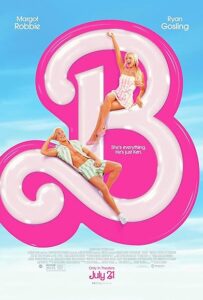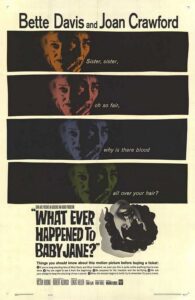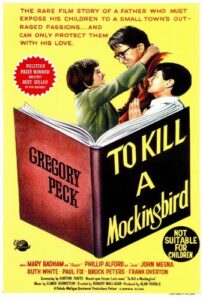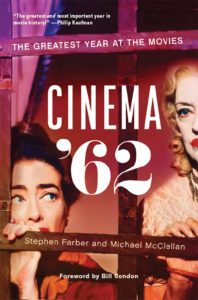 All the fuss over the Oscar nomination “snubs” of Margot Robbie and Greta Gerwig for best actress and best director respectively underscores a fundamental problem with the nominating process for the Motion Picture Academy today. Actually, the problem has existed for decades—an insufficient number of slots to accommodate all the worthy performances and directorial achievements, with the field of nominees limited to five. This problem was magnified in 2010 when the best picture race was expanded to up to ten entries (after sixty-five years set at five), and then fixed at ten a few years ago. But the failure to expand the acting and directing categories (at least) will continue to provoke controversy and conspiracy, whether warranted or not.
All the fuss over the Oscar nomination “snubs” of Margot Robbie and Greta Gerwig for best actress and best director respectively underscores a fundamental problem with the nominating process for the Motion Picture Academy today. Actually, the problem has existed for decades—an insufficient number of slots to accommodate all the worthy performances and directorial achievements, with the field of nominees limited to five. This problem was magnified in 2010 when the best picture race was expanded to up to ten entries (after sixty-five years set at five), and then fixed at ten a few years ago. But the failure to expand the acting and directing categories (at least) will continue to provoke controversy and conspiracy, whether warranted or not.
Of course both Robbie and Gerwig are richly deserving of nominations, like so many other actors and directors of years past, particularly in the milestone movie year 1962, when an abundance of outstanding acting and directing achievements were either recognized or omitted.  Concerning the acting categories, take the case of What Ever Happened to Baby Jane?, the career reviving box-office smash that restored movie legends Bette Davis and Joan Crawford to the Hollywood firmament. While Davis was rewarded with a best actress nod for her portrayal of the deranged title character, costar Joan Crawford, whose skillful underplaying balanced Davis’s tour de force, was overlooked, much to Crawford’s chagrin. In that pre-social media era, as noted by Oscar historians Mason Wiley and Damien Bona, “no columnist had the guts to ask Joan Crawford what she thought about her omission.” In the best actor field, the most egregious omission was Robert Preston’s bravura recreation of his Broadway role as Harold Hill in the best picture nominee The Music Man.
Concerning the acting categories, take the case of What Ever Happened to Baby Jane?, the career reviving box-office smash that restored movie legends Bette Davis and Joan Crawford to the Hollywood firmament. While Davis was rewarded with a best actress nod for her portrayal of the deranged title character, costar Joan Crawford, whose skillful underplaying balanced Davis’s tour de force, was overlooked, much to Crawford’s chagrin. In that pre-social media era, as noted by Oscar historians Mason Wiley and Damien Bona, “no columnist had the guts to ask Joan Crawford what she thought about her omission.” In the best actor field, the most egregious omission was Robert Preston’s bravura recreation of his Broadway role as Harold Hill in the best picture nominee The Music Man.
And there were numerous others who didn’t make the cut in 1962: best actress contenders Shirley MacLane (Two for the Seesaw), Harriet Andersson (Through a Glass Darkly), Jeanne Moreau (Jules and Jim), Rita Tushingham (A Taste of Honey), Rosalind Russell (Gypsy); best actor hopefuls James Mason (Lolita), Robert Mitchum (Cape Fear), Kirk Douglas (Lonely Are the Brave), Dirk Bogarde (Victim), Tom Courtenay (The Loneliness of the Long Distance Runner), Ralph Richardson (Long Day’s Journey into Night). The supporting fields were also a bumper crop of unrewarded performances: supporting actors Bobby Darin (Pressure Point), Lee Marvin (The Man Who Shot Liberty Valance), Peter Sellers (Lolita), Charles Laughton (Advise and Consent), Robert Ryan (Billy Budd), Jason Robards, Jr. (Long Day’s Journey into Night), Ross Martin (Experiment in Terror), Charles Bickford (Days of Wine and Roses), and two Black actors, Brock Peters (To Kill a Mockingbird) and Juano Hernandez (Hemingway’s Adventures of a Young Man). Supporting actress omissions included Barbara Stanwyck (Walk on the Wild Side), Shelley Winters (Lolita), Susannah York (Freud), Sue Lyon (Lolita), Daniela Rocca (Divorce Italian Style), Patricia Gozzi (Sundays and Cybele), Claire Bloom and Glynis Johns (The Chapman Report), along with the underappreciated Maidie Norman in the best role of her career as the Black housekeeper in What Ever Happened to Baby Jane?.
Actually a field of ten may not compensate for the all the overlooked performances among the nominees (most likely not in ’62), but would go a long way to acknowledge all the female and male actors shut out in 2023, with worthy performances from The Color Purple, May December, The Teacher’s Lounge, Past Lives, The Zone of Interest, Saltburn, and All of Us Strangers (notably Andrew Scott in the best actor race, not to mention Leonardo Di Caprio, the pivot of Killers of the Flower Moon) all unrecognized. Such are the vagaries of Oscar voting, so until a remedy is made with expanded fields, the “surprises” and “snubs” will continue in the future.





